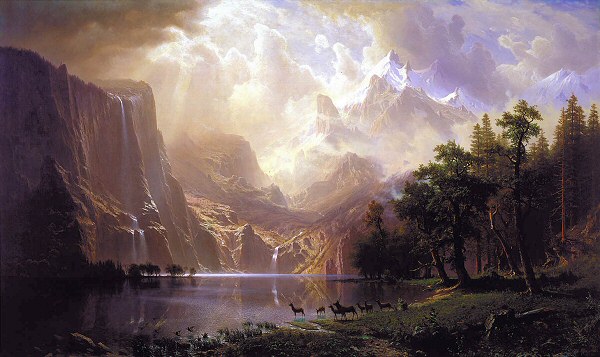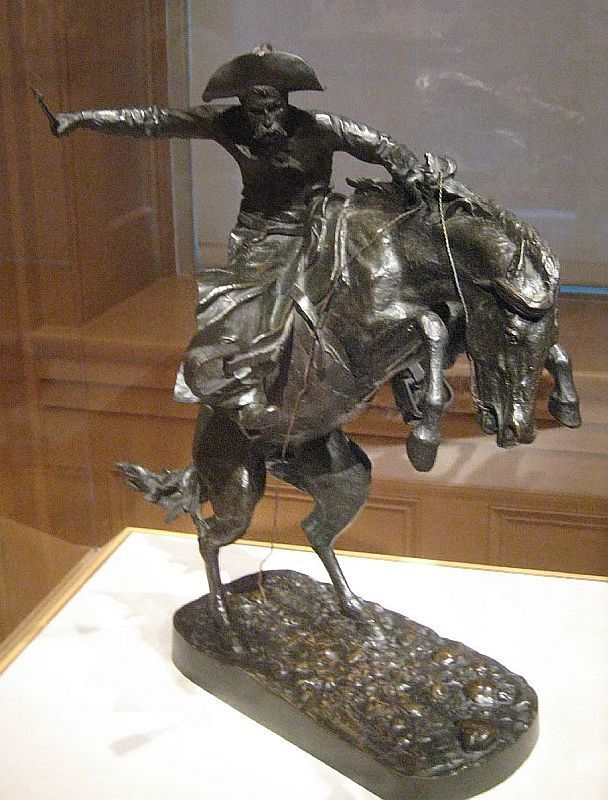Our new artist this week is Mary Cassatt. She is an impressionist painter well known for her paintings depicting mothers with their children.
Two links to short biographical sketches follow
Mary Cassatt The Complete Works
Mary Cassatt - Wikipedia
Today's painting is "Breakfast in Bed". I like the warm skin tones of mother and daughter against the cool soft blues of the bedding. The diagonal lines formed by the little girl's legs and mother's arms then crossed by another diagonal created the little girls arm leading up to and continued in the mother's face gives this otherwise placid picture its action and drama.
 |
| Breakfast in Bed by Mary Cassatt |
I found a lovely piece of music by Wolfgang Amadeus Mozart this morning - Concerto for Flute and Harp in C Major. I hope you enjoy it as much as I am. Mozart - Flute and Harp
Today's poem by James Whitcomb Riley isn't in quite the same style as the ones we've read so far, but it is filled with beautiful and moving imagery and wording.
A Country Pathway
I come upon it suddenly, alone--
A little pathway winding in the weeds
That fringe the roadside; and with dreams my own,
I wander as it leads.
Full wistfully along the slender way,
Through summer tan of freckled shade and shine,
I take the path that leads me as it may--
Its every choice is mine.
A chipmunk, or a sudden-whirring quail,
Is startled by my step as on I fare--
A garter-snake across the dusty trail
Glances and--is not there.
Above the arching jimson-weeds flare twos
And twos of sallow-yellow butterflies,
Like blooms of lorn primroses blowing loose
When autumn winds arise.
The trail dips--dwindles--broadens then, and lifts
Itself astride a cross-road dubiously,
And, from the fennel marge beyond it, drifts
Still onward, beckoning me.
And though it needs must lure me mile on mile
Out of the public highway, still I go,
My thoughts, far in advance in Indian file,
Allure me even so.
Why, I am as a long-lost boy that went
At dusk to bring the cattle to the bars,
And was not found again, though Heaven lent
His mother all the stars
With which to seek him through that awful night
O years of nights as vain!--Stars never rise
But well might miss their glitter in the light
Of tears in mother-eyes!
So--on, with quickened breaths, I follow still--
My avant-courier must be obeyed!
Thus am I led, and thus the path, at will,
Invites me to invade
A meadow's precincts, where my daring guide
Clambers the steps of an old-fashioned stile,
And stumbles down again, the other side,
To gambol there a while.
In pranks of hide-and-seek, as on ahead
I see it running, while the clover-stalks
Shake rosy fists at me, as though they said--
'You dog our country walks
'And mutilate us with your walking-stick!--
We will not suffer tamely what you do,
And warn you at your peril,--for we'll sick
Our bumblebees on you!'
But I smile back, in airy nonchalance,--
The more determined on my wayward quest,
As some bright memory a moment dawns
A morning in my breast--
Sending a thrill that hurries me along
In faulty similes of childish skips,
Enthused with lithe contortions of a song
Performing on my lips.
In wild meanderings o'er pasture wealth--
Erratic wanderings through dead'ning lands,
Where sly old brambles, plucking me by stealth,
Put berries in my hands:
Or the path climbs a boulder--wades a slough--
Or, rollicking through buttercups and flags,
Goes gaily dancing o'er a deep bayou
On old tree-trunks and snags:
Or, at the creek, leads o'er a limpid pool
Upon a bridge the stream itself has made,
With some Spring-freshet for the mighty tool
That its foundation laid.
I pause a moment here to bend and muse,
With dreamy eyes, on my reflection, where
A boat-backed bug drifts on a helpless cruise,
Or wildly oars the air,
As, dimly seen, the pirate of the brook--
The pike, whose jaunty hulk denotes his speed--
Swings pivoting about, with wary look
Of low and cunning greed.
Till, filled with other thought, I turn again
To where the pathway enters in a realm
Of lordly woodland, under sovereign reign
Of towering oak and elm.
A puritanic quiet here reviles
The almost whispered warble from the hedge,
And takes a locust's rasping voice and files
The silence to an edge.
In such a solitude my somber way
Strays like a misanthrope within a gloom
Of his own shadows--till the perfect day
Bursts into sudden bloom,
And crowns a long, declining stretch of space,
Where King Corn's armies lie with flags unfurled,
And where the valley's dint in Nature's face
Dimples a smiling world.
And lo! through mists that may not be dispelled,
I see an old farm homestead, as in dreams,
Where, like a gem in costly setting held,
The old log cabin gleams.
. . . . . . .
O darling Pathway! lead me bravely on
Adown your valley-way, and run before
Among the roses crowding up the lawn
And thronging at the door,--
And carry up the echo there that shall
Arouse the drowsy dog, that he may bay
The household out to greet the prodigal
That wanders home to-day.
James Whitcomb Riley













